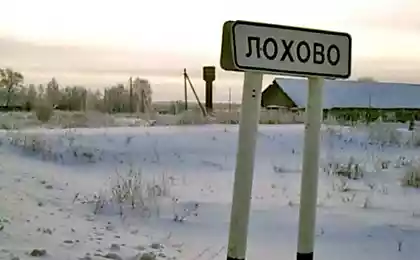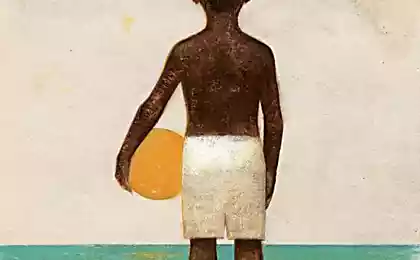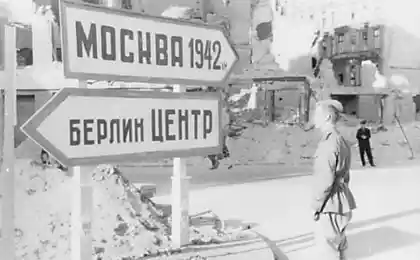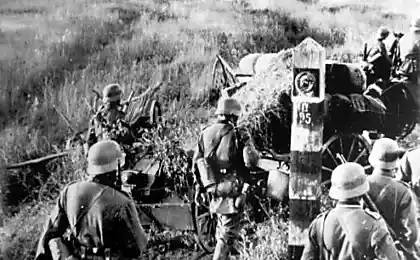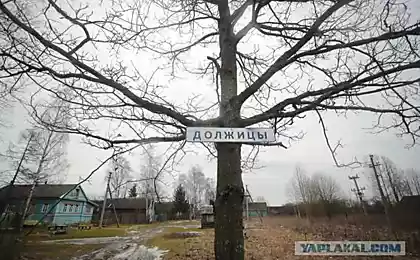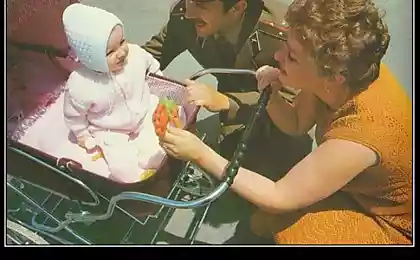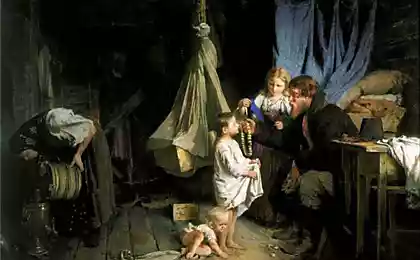180
What was the village youth in Soviet times and what did these young people aspire to?
General collectivization put a fat cross on the village. Having taken away their allotments from the working peasants, the Soviet power cut the living root that holds the master near his land. The prospect of staying with nothing fascinated few, and village youth fled in search of a better life in the cities. Since the kolkhozes needed labor, the authorities began to retain young specialists in all ways. Without the permission of the management, people were not allowed to leave the farm.
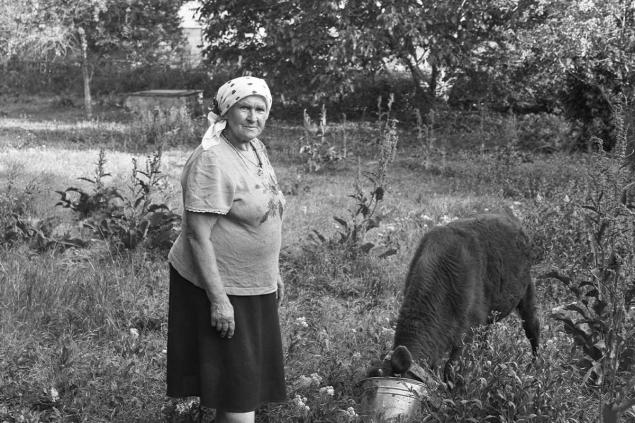
Village youth usually did not leave the boundaries of a certain area. The grooms willingly chose a pair of local girls or sent matchmakers to the surrounding villages. That is why most of the relatives were nearby. Both in sorrow and in joy, they necessarily responded to the call for help, and when the feast came, every house was filled with guests. In the countryside, it was always hard to work, but they also knew how to relax: songs were sung to hoarseness and danced until they fell.
Then live communication prevailed. Young people met at gatherings and mass festivities, where guys from all around met. Since the acquaintance took place in person, and additional information about a person could easily be learned from relatives or mutual acquaintances, it did without bitter disappointments.
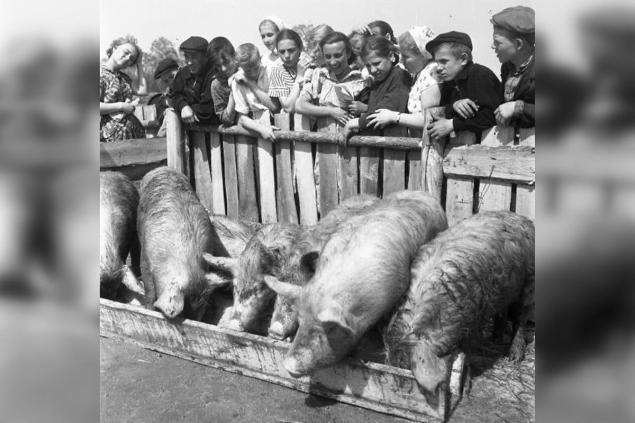
My grandmother thus married a guy from a neighboring village, and they lived soul to old age. She came from a large family. No one was surprised by this, but it is remarkable that God sent only daughters. The sisters grew up and turned into beautiful girls for extradition.
The cavaliers didn't let them through. My grandfather was a very phlegmatic young man, but also visited the brides. He was the only one who took the word “sitting down”, probably literally, because he would go into the house, sit in a vacant place and sit silently all evening. A shy guy once faked that all the sisters will be disassembled, and he will sit on the sidelines. To which he replied with a smile: “There are so many of them!” I'll get one anyway!
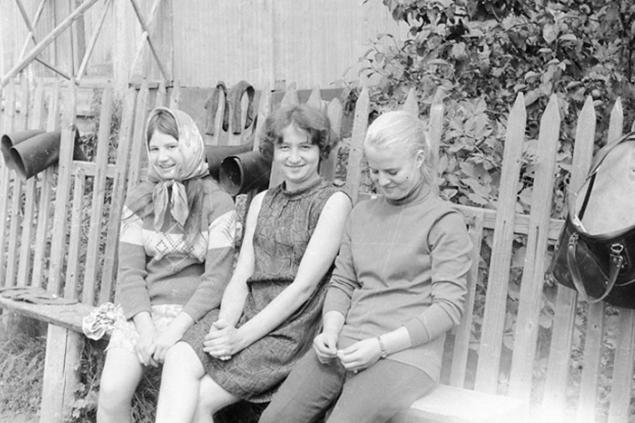
When the villagers began to issue passports, the dependence on the chairman weakened, and the turnover of personnel resumed. For a hundred years, the desire to escape from the village has become a tradition. After graduation, graduates went to vocational or higher education, and many did not return.
Only a few agreed to stay to support older parents. This was enough so that the houses were not empty, but there was no question of any expansion of the settlement. It is difficult to imagine how much the number of peasants would have increased during this time if all the village youth had not left their native penates and built a house somewhere nearby. After all, in the recent past, two children in a rural family were very rare, because they usually gave birth to three or more children. The people joked about this: they will go out into the field - the heart is happy, they will sit at the table - the soul hurts!

Only advanced farms flourished, in which the far-sighted village council knew how to interest young families. They were provided with housing and encouraged by high wages. In these villages, life was a key all year round. Other settlements were revived mainly during summer holidays or winter holidays.
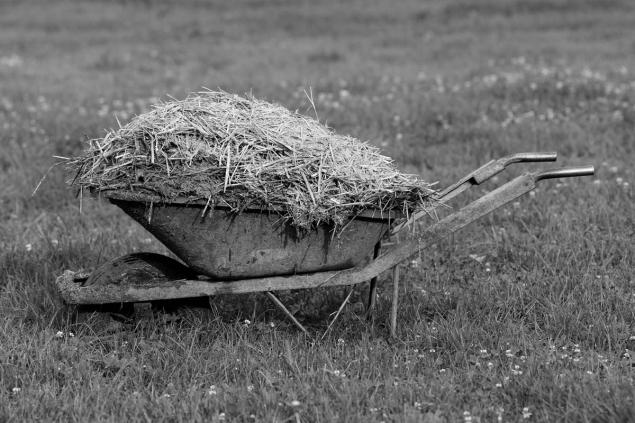
Then students came home and visited close relatives to see their relatives and get some fresh air. City grandchildren sometimes spent the summer in the care of their beloved grandparents, because it had a positive effect on the developing body. Unfortunately, with the arrival of autumn, their yards were empty again.
Did you go to your grandmother's in the summer?

Village youth usually did not leave the boundaries of a certain area. The grooms willingly chose a pair of local girls or sent matchmakers to the surrounding villages. That is why most of the relatives were nearby. Both in sorrow and in joy, they necessarily responded to the call for help, and when the feast came, every house was filled with guests. In the countryside, it was always hard to work, but they also knew how to relax: songs were sung to hoarseness and danced until they fell.
Then live communication prevailed. Young people met at gatherings and mass festivities, where guys from all around met. Since the acquaintance took place in person, and additional information about a person could easily be learned from relatives or mutual acquaintances, it did without bitter disappointments.

My grandmother thus married a guy from a neighboring village, and they lived soul to old age. She came from a large family. No one was surprised by this, but it is remarkable that God sent only daughters. The sisters grew up and turned into beautiful girls for extradition.
The cavaliers didn't let them through. My grandfather was a very phlegmatic young man, but also visited the brides. He was the only one who took the word “sitting down”, probably literally, because he would go into the house, sit in a vacant place and sit silently all evening. A shy guy once faked that all the sisters will be disassembled, and he will sit on the sidelines. To which he replied with a smile: “There are so many of them!” I'll get one anyway!

When the villagers began to issue passports, the dependence on the chairman weakened, and the turnover of personnel resumed. For a hundred years, the desire to escape from the village has become a tradition. After graduation, graduates went to vocational or higher education, and many did not return.
Only a few agreed to stay to support older parents. This was enough so that the houses were not empty, but there was no question of any expansion of the settlement. It is difficult to imagine how much the number of peasants would have increased during this time if all the village youth had not left their native penates and built a house somewhere nearby. After all, in the recent past, two children in a rural family were very rare, because they usually gave birth to three or more children. The people joked about this: they will go out into the field - the heart is happy, they will sit at the table - the soul hurts!

Only advanced farms flourished, in which the far-sighted village council knew how to interest young families. They were provided with housing and encouraged by high wages. In these villages, life was a key all year round. Other settlements were revived mainly during summer holidays or winter holidays.

Then students came home and visited close relatives to see their relatives and get some fresh air. City grandchildren sometimes spent the summer in the care of their beloved grandparents, because it had a positive effect on the developing body. Unfortunately, with the arrival of autumn, their yards were empty again.
Did you go to your grandmother's in the summer?
Infrared spotlights for video surveillance – an advantage in the dark
Elon Musk is sure that in a few years there will be no life on Earth, and plans to move to Mars



